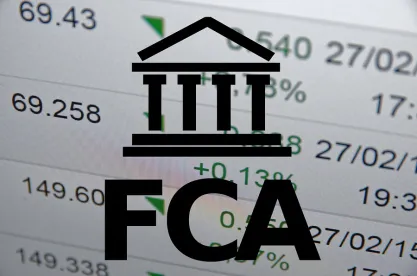On 20 January 2020 the FCA published a Dear CEO Letter to Authorised Fund Managers (AFMs). The letter is directed at AFMs that predominantly directly manage mainstream investments, or advise on mainstream investments, excluding wealth managers and financial advisers. The letter outlined the FCA’s supervision priorities for those firms, and the FCA will expect firms to take appropriate action. Asset Management Firms (AMFs) may also be asked to take part in work related to these priorities.
The supervision priorities outlined in the letter are:
-
Liquidity management –
-
A central responsibility of any AFM is to ensure effective liquidity management in funds.
-
AFMs are expected to take any necessary or appropriate action following the FCA policy statement on illiquid assets and open ended funds, FCA letter on Effective liquidity management: good practice for Authorised Fund Managers and FCA and Bank of England statement on joint review of open-ended funds.
-
-
Firm’s governance –
-
FCA expects AFMs to refresh their approach to governance and take necessary steps to improve in line with the Senior Manager & Certification Regime (SMCR). The FCA will be conducting reviews during the first 6 months of 2020 to evaluate the effectiveness of governance in the sector, with a particular focus on firms’ efforts to implement the SMCR.
-
AFMs should also ensure that the boards of their regulated entities engaged in robust discussions and challenge important business decisions, without undue reliance on group structures. The FCA expects AFMs to recognise and take steps to mitigate harm arising from any conflicts of interest between affiliates and any delegate investment management entities.
-
-
Asset Management Market Study (AMMS) remedies –
-
The rules introduced following the AMMS Final Report are now in effect. Accordingly, AFMs are required to conduct value assessments on firms’ authorised funds.
-
Governing bodies of AMFs must now have at least a quarter of their members as independent (and have no fewer than two independent directors).
-
The FCA will continue to take robust action against funds which deliver poor value. The FCA will be conducting reviews during the first half of 2020 to understand how effectively firms have undertaken value assessments. During this review the FCA will be seeking evidence of meaningful challenges made at AMF boards on proposals made by the executives.
-
The FCA expects AFMs to ensure that funds’ objectives are clear, fair, not misleading and that they comply with the new rules around objectives disclosure as the FCA assesses and authorises investment funds.
-
-
Product governance –
-
MiFID II applies to AMFs manufacturing UK authorised funds.
-
The FCA wishes to see products designed in the best interests of a specified target market.
-
The FCA has begun a review to assess how effectively new product governance provisions have been implemented across the sector and it expects to complete this work in early 2020.
-
The FCA is also reviewing how effectively ‘host’ Authorised Corporate Directors (ACDs), i.e. AFMs that are not within the group structure of the delegate investment manager, undertake their responsibilities, because the FCA is concerned about ‘host’ ACDs not undertaking their responsibilities effectively. This work is expected to be completed by early 2020.
-
-
LIBOR transition –
-
AMFs should plan on the basis that LIBOR will cease from the start of 2022.
-
AMFs should recognise its responsibilities to facilitate and contribute to an effective transition to new rates, such as SONIA.
-
The Dear CEO LIBOR Letter published in 2018 should be used as guidance as it may indicate the FCA’s broad expectations.
-
-
Operational resilience –
-
The FCA expects AMFs to ensure they manage their technology and cyber risk appropriately.
-
AMFs which have a greater risk of causing harm are now subject to proactive technology reviews. The FCA may also choose to involve firms in ad-hoc reviews.
-
Where an AMF suffers material technological failures or cyber-attacks, the FCA expects to be contacted promptly.
-
-
EU withdrawal –
-
EU law will be applicable in the UK until the end of the implementation period, i.e. 31 December 2020.
-
The FCA expects AFMs to consider how the end of the implementation period will affect the AFM and customers, and what action the AFM may need to take to be ready for 1 January 2021.
-
Following the AMMS and recent high profile gatings and failures, the FCA continues to focus closely on the asset management industry and its governance, liquidity, and resilience arrangements. With a busy supervisory programme planned, it seems asset managers will be seeing a lot of scrutiny from the FCA in 2020.
Co-Authored by Dinuka Kottegoda




 />i
/>i

